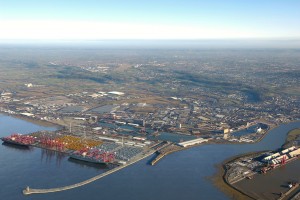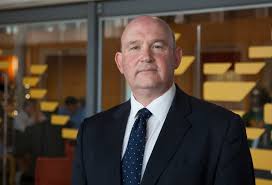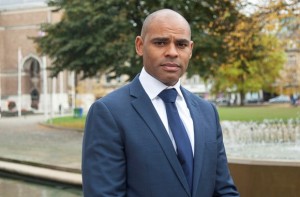Turning a huge site at Avonmouth and Severnside into one of a new generation of ‘freeports’ could give Bristol’s economy a massive post-pandemic boost and create up to 50,000 jobs, it was claimed today.
The West of England Combined Authority (WECA), which includes Bristol City Council, today officially submitted its long-expected bid to the government for freeport status for the area, including Bristol Port, pictured. 
While the freeport concept has been criticised as likely to have little economic impact, according to WECA it would bring regeneration and jobs and boost the region’s reputation as a global leader in high-value design and innovation, building on strengths in aerospace, nuclear and food manufacturing.
It would also encourage significant growth in green manufacturing and technologies, for example developing the next generation of low carbon aircrafts, nuclear fusion and digital engineering, it said.
WECA trumpeted all-party support for the bid, which has been drawn up with public and private sector partners, including large-scale businesses across the aerospace and nuclear sector, the region’s universities and colleges, innovation centres, local authorities and business networks.
Freeports will have tax concessions granted to goods brought into them, as long as they do not leave the port area – effectively placing them outside the UK’s usual customs area. 
Supporters says this means they will create space for businesses to import goods and materials, add value to them through manufacturing processes, and export them – so creating conditions for inward investment, business growth and job creation.
The government wants to create up to 10 of them around the UK. However, the freeport concept has harsh critics, with opponents claiming they will have little economic impact on their surroundings and amount to little more than a “levelling-up gesture” by the government.
According to WECA’s bid, the Great Western Freeport would be based around Bristol Port – the UK’s most centrally located deep water port – with additional tax and customs sites at Avonmouth and Severnside, the Junction 21 Enterprise Area and the Gravity Smart Campus.
Economic modelling shows it could bring in an economic return of £3b each year to the regional economy, it said.
The Conservative West of England Mayor Tim Bowles, pictured, hailed it as “a huge opportunity for our region”.
He added: “The Great Western Freeport will see our area become a national hub for green manufacturing and trade, playing a vital role in the recovery of our region from Covid-19 and creating up to 50,000 decent, well-paid jobs.
“It will help us deliver our aspiration for green and inclusive growth, regenerating areas, attracting new businesses to grow and locate here and create jobs and skills opportunities for residents across our urban and rural communities. 
“This is a highly competitive process, but we have a strong story to tell. Now we need the whole region to back the bid so we can make a clear case to Government that there is widespread support for the Great Western Freeport.”
The Labour Mayor of Bristol Marvin Rees, pictured, said it was recognised that freeports were a key part of the government’s planning for economic recovery.
“And so we are committed to working alongside city partners to ensure they deliver clear benefits for the people of Bristol,” he added.
“We need to take full advantage of the contribution a Freeport can play in retaining and creating jobs for local people while supporting our economic recovery from the impacts of Covid-19, our sustainability goals and ambition to be carbon neutral by 2030.”
However, Patrick Keating, a North Somerset Liberal Democrat councillor and the party’s Parliamentary spokesperson for Weston-super-Mare, said freeports had looser labour rights and environmental protections than elsewhere while claims they created jobs was open to question.
Writing for Bristol 24/7, he said research showed that freeports “do not create new economic activity – they simply cannibalise it from elsewhere in the country”.
He added: “Even the Treasury has admitted that ‘there is evidence in some cases that zone-based policy can have a displacement effect’, with lower employment in nearby areas outside the freeport boundary. These concerns have been echoed by a range of stakeholders, including the British Chambers of Commerce.
“Supporters claim that by being able to import parts tax free, manufacturers can gain a competitive advantage when they re-export goods to other countries.
“However, research again shows that these benefits are non-existent, particularly in the UK where post-Brexit tariffs on parts and components for manufacturing processes are already low.”






























